
Osteoarthritis of the knee does not always end a long-running career. Most runners over 45 have some degree of arthritic change in their knee and don’t even know it. The worst thing you can do for your overall health and the health of your knee joint is to cease activity thinking that you are “saving your knees”. You’re not, and you’re taking away an activity you probably find incredibly enjoyable. Many bad things happen to us when we “rest”. This post explores the changes in our bodies that take place when we are forced to rest.
This post is going to explore whether or not we can continue to run, despite a diagnosis of osteoarthritis of the knee.
We are complicated beings. Osteoarthritis is not a wear and tear issue… your running is not causing you to lose cartilage. As we will explore, osteoarthritis is a chemical imbalance brought on by the complex biology and reactions that take place within our bodies.
Should runners with knee arthritis stop running?
How many times has a healthcare professional or friend told you to rest because you have osteoarthritis of the knee and they don’t want you to make it worse? Well… that advice might seem to be accurate, but it’s NOT :-). High-five, please. Now, it’s hard to fight beliefs with facts… but I’ll try anyway.
Many runners believe that osteoarthritis is a terminal diagnosis and their running days are numbered. That is simply not true for the majority of you. This recent paper showed that the changes in our knees associated with osteoarthritis do not worsen if we continue running :-) How great is that!
Osteoarthritis is one of the most prevalent issues that affect our knees. Osteoarthritis means that the cartilage in your knee is becoming thinner. As the cartilage thins, the cushioning in your knee is disappearing. The pain from a knee with arthritis can come from many different sources. It is not common for the thinning cartilage to hurt. Cartilage has no nerve fibers in it.
Knee arthritis is not caused by running.
We know that osteoarthritis is not caused by running. As a matter of fact, runners develop arthritis less commonly than their non-running counterparts. Truth! Your risk of developing osteoarthritis of the knee is lower than the risk in your sedentary friends. It turns out that cartilage likes the cyclical loading associated with running. As I discussed in this post, which I strongly suggest you read, osteoarthritis is mostly a biological issue. That means that the knee joint lining (synovium) and other cells in the knee start to manufacture chemicals that are hostile to cartilage. Running usually decreases the concentration and amount of those more toxic chemicals. This post goes into detail about how knee pain sufferers with osteoarthritis can remain active, and also feel better!
The most common cause of knee arthritis in runners is …
The most common cause of knee arthritis is your genetics or DNA. The second most common cause of osteoarthritis of the knee is post-traumatic arthritis following severe trauma to the knee.
Runners do not want to stop running. For runners who find out they have early or moderate arthritis, it usually does not mean your running days are over.
There are many misconceptions about osteoarthritis, particularly in runners. First off osteoarthritis can be over-diagnosed … it’s not always the source of your pain. It’s easy to look at the X-ray of a runner and say you have arthritis. But, frequently there is another source of knee pain present that is treatable and should not end your running career. Another danger is simply that people tend to label themselves. They do not understand osteoarthritis well and why their knee is hurting them. Many runners believe that osteoarthritis is a terminal diagnosis and their running days are numbered. At this point… I strongly suggest you read this post on what osteoarthritis is and why we should continue to be active.
There are often other causes of knee pain in runners that are the source of pain, despite the fact that your x-rays show that arthritis is starting to develop. Most people over 45 have detectable signs of arthritis in their knee… even though most have no pain.
Knee pain is due to inflammation. It is incumbent upon us to find out why there is inflammation in your knee. It’s not always due to arthritis. I’ve seen patients with horrible looking X-rays yet they have little pain and no swelling. Yet, I’ve seen people with mild arthritis who have severe inflammation. As I’ve said over and over, you treat the patient and not the X-rays.
In many runners, once the knee pain and knee swelling start and you stop running— a vicious cycle follows. You stop running, your muscles weaken further and your symptoms will return immediately if you try to return after a period of rest. This post goes deep into all the effects that happen to us if we rest.
Should runners change their training if they have osteoarthritis?
There are many issues at play when trying to address knee pain or inflammation in runners. One of the keys to improving knee pain in runners is to change the load or stress across the knee. That could mean a change in your schedule. It could mean a shoe change. It could also be that you need a change in your running form. For example, a heel striker will feel better if you can get them to cushion their landing better by landing on your toes or mid-foot. Running re-education is possible. Working with a running coach or experienced PT to alter your running style to one which is less stressful on your knees could have a significant impact on your ability to return to the trails.
Many runners with knee osteoarthritis will find that they can run the same distance each week, they just need to break it up into shorter runs.
Once a runner rests due to pain, weakness sets in. It happens a lot faster than you think. That can worsen the pain you are experiencing upon an attempted return to running. Strengthening your legs, hips, pelvis, and core is of paramount importance. Weakness around the hip and pelvis will lead to knee pain, even in those of you without osteoarthritis. Improving your core strength, and hip strength will usually significantly improve your chance of running pain-free. This post goes deep on why leg exercises matter… not just for our running, but for our longevity.
A strong butt is key to a happy life as a runner
If arthritic pain is affecting your ability to run and you’re still trying to finish a 5k under 25 minutes then you may simply need to come to grips with the fact that you need to adopt a lower pace, more style aerobic run. If you’ve run a mile, you’ve run a mile. It really shouldn’t matter what the pace is. Your cadence or how many steps you take each minute is important. Shorter strides, with a higher cadence (170-180) combined with a load-sharing mid-foot strike could improve your ability to remain an active runner despite the degenerative changes in your knee.
Show your body some variation, and respect its need to recover.
Rest… or recovery is also critically important for the runner with knee osteoarthritis. An 8 mile run day should be followed by a cross-training day, a day in the pool, or a strengthening day in the gym. Long or hard runs take their toll on our joints, muscles as well as our cardiac physiology. Show your body some variation, and respect its need to recover. Another very important variable that affects your recovery is how stressful your day was in general — this includes how well you slept, your overall stress level, and your diet. Diets high in sugar lead to an increase in systemic inflammation. A large daily stress load and poor sleeping lead to an increase in your cortisol level, a stress hormone, which throws off your insulin levels and blood glucose levels. Again, this leads to poor recovery and an increase in systemic inflammation.
I have found apps like HRV4Training very useful in this regard. It enables you to keep up with your physiology and it can help you quantify your ability to handle physical and emotional stress and determine if your recovery period is complete or not.
Osteoarthritis isn’t always a terminal diagnosis for runners. Eventually, arthritis and inflammation might be too much for your knee to handle and it will finally come to the point where you need to consider another aerobic activity such as cycling or swimming. Until that day arrives, respect your recovery, work hard at your strengthening, adjust your running style, cadence and speed and you should be running for many more years to come.
What if your knee pain is too severe to run?
If your arthritis is severe and you are unable to run because of the pain, you may have options other than a knee replacement. Knee replacements are generally successful at alleviating pain, but most people will not be able to return to running. Many runners who develop osteoarthritis tend to do so on only one side of the knee. In those instances, a high tibial osteotomy is a procedure that is often able to get you back to running. For runners, this surgery is often preferred to a knee replacement.
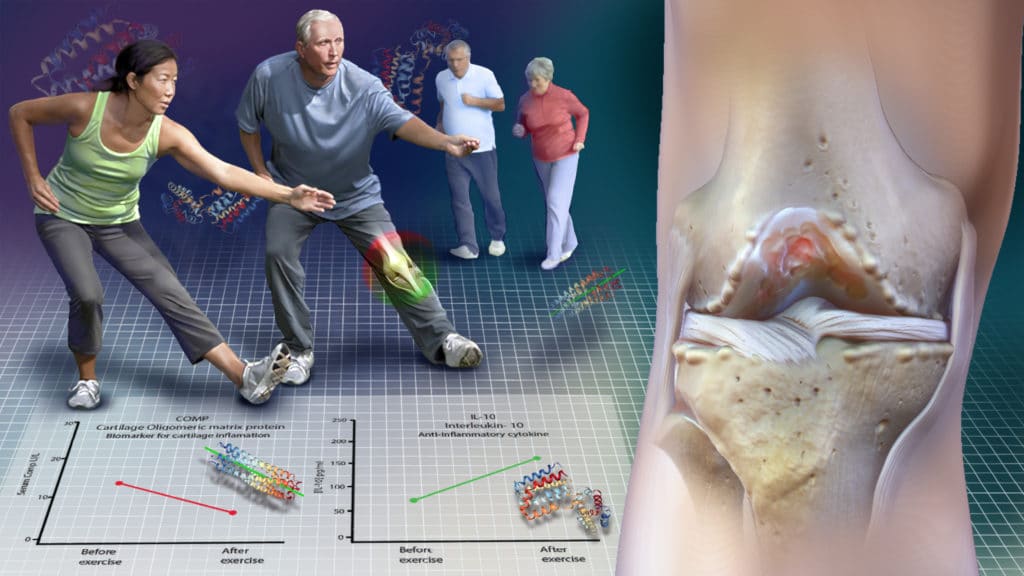
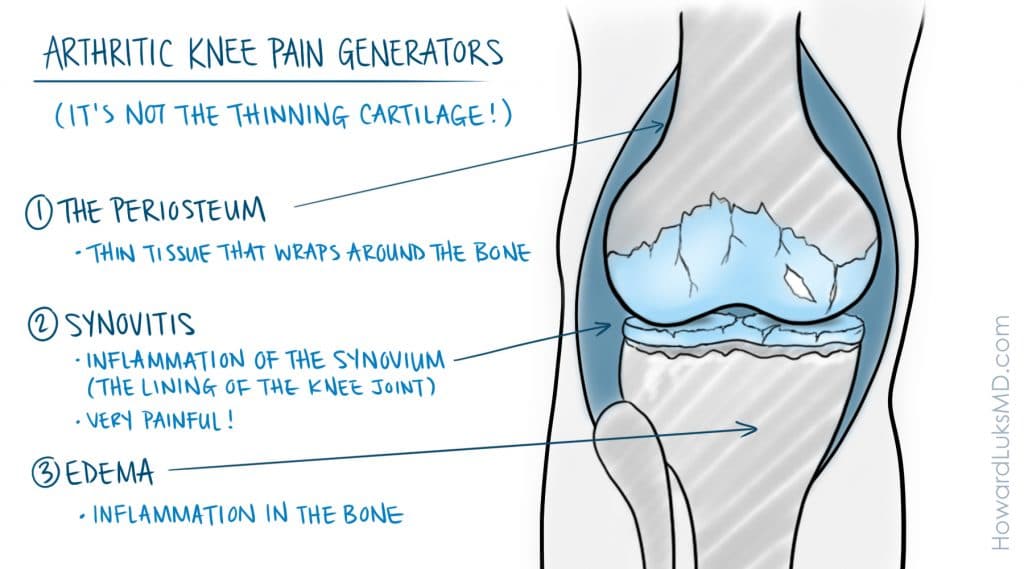
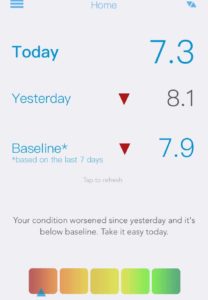


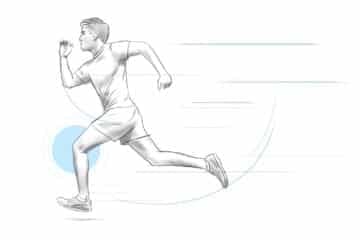


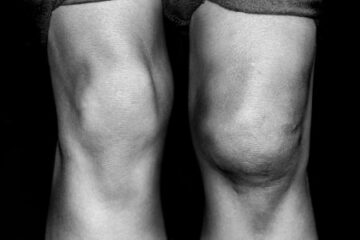





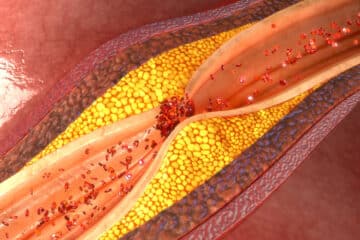
I have just been diagnosed with osteroarthritus in my right shoulder. I have probably had it fo some time but it was mistaken for strains etc… I am 47…. Am I able to run and bike ride still?
sure… OA in the shoulder should not be affected by running.
Im from Africa, I have a pcl grade 3 injury, no surgery done and i have pain on the medial aspect of my patella right limb.
What would you advise running?
How many years would you give me if i ran 5 km a day before athritis sets in?
Any special or important advise?
It’s hard to say… many PCL ruptures lead to arthritis in the front and inner side of the knee. No known method to prevent this from happening. Sorry. No data or proof that bracing minimizes risk of OA.
I would like to run a marathon. I have been diagnosed with OA in my knees. Is it possible to do this or not? I have run a few halfs and my knees have coped. Training is intense for a marathon and I worry I could do more harm than good. It has always been my dream to run one.
HI Samantha… As a fellow runner, I get it… The answer to that isn’t straight forward. There is no solid evidence that arthritis will worsen due to running. However, that takes into account that you have no history of traumatic injury, meniscus tear, etc. It also depends on the severity of the arthritis that is present. I have plenty of patients who are distance runners with mild osteoarthritis and they are able to run as long as the pain is mild. You should have a long chat with your Ortho doc and perhaps a second doc if you need another opinion.